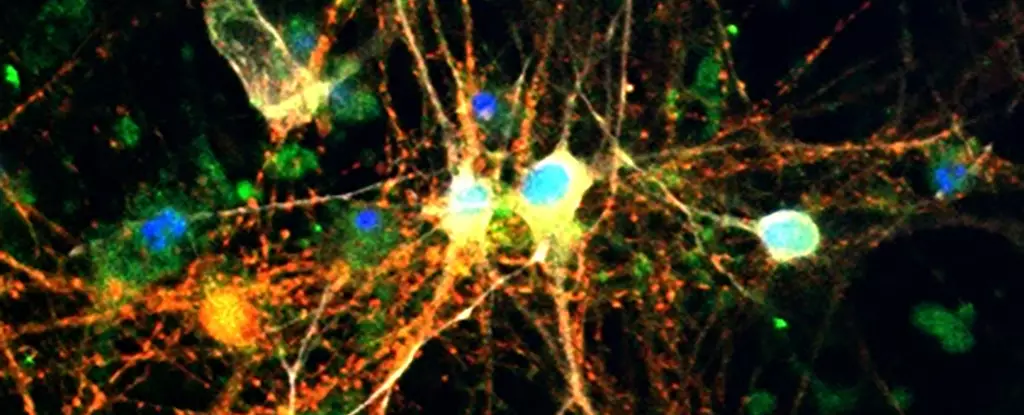The conventional understanding of glycogen within our bodies has long been limited to its role as a storage alarm in muscles and the liver, a quick reserve of energy when needed. However, recent groundbreaking research suggests that this molecule’s influence extends far beyond these classic functions, especially within the complex environment of the human brain. This revelation is nothing short of a paradigm shift, forcing us to reconsider the significance of metabolic processes previously underestimated or outright ignored. For years, scientists have focused on pathological proteins like tau and amyloid beta as the primary culprits in conditions like Alzheimer’s disease. Now, emerging evidence indicates that intracellular energy reserves — specifically glycogen — may be a key player in the development and progression of neurodegeneration.
This fresh perspective exposes a critical flaw in the old dogma, pushing the scientific community to reevaluate how metabolic disturbances might directly contribute to neuronal decline. Not only does this challenge the neat dichotomy of “damage caused solely by harmful proteins,” but it also opens the door for novel therapeutic angles that threaten to change the landscape of neurodegenerative research. It’s an exciting yet sobering reminder that our deepest assumptions, even about well-studied molecules like glycogen, can be wrong, and that uncharted territory holds the potential for impactful breakthroughs.
Targeting the Root Causes: A Radical Shift in Alzheimer’s Strategy
The implications of this discovery extend into clinical practice, especially in tackling Alzheimer’s disease, which remains an insidious and relentless affliction with few effective treatments. The research reveals that abnormal glycogen buildup interacts intricately with tau pathology, exacerbating neuronal damage and hastening cognitive decline. This finding complicates the narrative that harmful protein aggregations are solely responsible for disease progression. Instead, it suggests that deficits in the brain’s metabolic machinery might be actively facilitating the accumulation of toxic tau proteins.
The focus then shifts to mitochondrial-like enzymes such as glycogen phosphorylase (GlyP). The study demonstrates that enhancing GlyP activity can promote the breakdown of excess glycogen, thereby reducing cellular stress and oxidative damage. Such metabolic engineering presents a promising new route for intervention—one that targets the underlying biochemical chaos rather than just mitigating its symptoms. This approach prompts a reinterpretation of existing treatments and underscores the importance of metabolic health in neural longevity.
Once dismissed as mere energy reserves, glycogen now appears to be a pivotal factor in neurodegenerative diseases, offering fresh hope for future therapies that could prevent or slow neuronal death by restoring metabolic balance. It is clear that nuanced manipulation of intrinsic cellular pathways could prove to be more effective than conventional strategies based on symptomatic relief.
Diet, Drugs, and the Quest for a Breakthrough
The broader significance of these findings is illuminated further when considering lifestyle and pharmacological interventions. The research suggests that dietary restrictions, especially low-protein diets known for their neuroprotective effects, can modulate glycogen metabolism and extend the lifespan of models afflicted with tauopathy. Such insights lend credence to the idea that simple lifestyle changes, when targeted correctly, can produce profound effects on brain health. This challenges the industry’s tendency to favor high-tech solutions over accessible, preventative strategies rooted in fundamental biology.
Furthermore, the researchers developed a molecule analogous to naturally occurring signaling compounds — 8-Br-cAMP — which mimics the benefits of dietary restriction by activating GlyP activity pharmacologically. These experimental drugs demonstrate the potential to harness the body’s own biochemical pathways to combat age-related neurodegeneration, moving us away from purely symptomatic treatments toward targeted metabolic correction.
The exploration of widely-used drugs like GLP-1 receptor agonists, such as Ozempic, which are known for managing diabetes and weight loss, takes on new significance. Their possible role in mitigating dementia signals a convergence of metabolic health and neurodegeneration therapies, creating a compelling case for a multidisciplinary approach. Such developments emphasize that an integrated understanding of health—where metabolic and neurological systems intersect—could lead to more effective, holistic strategies to combat age-related cognitive decline.
A Future Perspective: A Hopeful yet Challenging Path Ahead
While these discoveries herald an optimistic future for neurodegenerative medicine, they also lay bare the complexity and difficulty of truly understanding and manipulating brain chemistry. The interplay between glycogen, tau proteins, and metabolic enzymes underscores a delicate balance within neurons—a balance that, once disrupted, can spiral into devastating pathology. It’s a stark reminder that, despite technological advances, the brain’s inner workings remain enigmatic and fragile.
This research challenges us to abandon simplistic models in favor of more comprehensive, nuanced approaches. It underscores the need for continued investment in basic science that explores the fundamental mechanisms of cellular metabolism. The possibility of reconnecting metabolic health with preventing neurodegeneration shifts the dialogue from reactive treatments to proactive prevention, aligning more closely with the values of a centered liberal approach—emphasizing proactive, science-based solutions rooted in public health and individual well-being.
In essence, this new understanding encourages a broader societal shift that prioritizes metabolic health, diet, and early intervention as pillars of cognitive longevity. Not only does this approach have the potential to revolutionize how we treat and prevent diseases like Alzheimer’s, but it also challenges us to think more critically about the biological systems we often oversimplify or overlook. The road ahead may be complex and uncertain, but it is undeniably full of promise for a future where neurodegeneration may no longer be an inevitable sentence.

